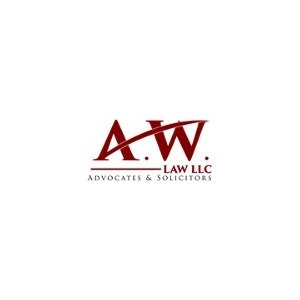Best Business Lawyers in City Hall
Share your needs with us, get contacted by law firms.
Free. Takes 2 min.
List of the best lawyers in City Hall, Singapore
Singapore Business Legal Articles
Browse our 4 legal articles about Business in Singapore written by expert lawyers.
- Mediation: Parties get to meet early on
- I remember a case I did a few years back. The business dispute at the High Court was extremely litigious. Application after application, allegation after allegation. And this was between business partners who has started the business together and built it from scratch into a multi-million-dollar, international business spanning many... Read more →
- Mediation: Keeping disputes out of court
- To all business owners, managers, and executives. You start your business. You have a dispute. One thing that you will definitely regret in such a case is not having a mandatory Mediation Clause in your agreements.Singapore is at the forefront of the movement to encourage mediation instead of more abrasive... Read more →
- The Liability of Directors for Company Insolvencies
- Directors of an insolvent company owe a fiduciary duty to the general body of creditors of the company. Directors may be found in breach of such duties if they continue the business of their company without due regard for the collective interest of the creditors.There is, however, no specific rule... Read more →
About Business Law in City Hall, Singapore
City Hall, Singapore, is a bustling area known for its vibrant economic activity and business opportunities. Situated in the heart of the Central Business District, it boasts a robust legal framework conducive to both local and international businesses. The environment in City Hall supports a range of sectors, including finance, technology, retail, and hospitality. Due to the dynamic nature of business here, understanding the local legal landscape is crucial for anyone involved in business operations.
Why You May Need a Lawyer
Running a business involves a multitude of legal considerations, and there are several scenarios where legal advice may be essential. Entrepreneurs may need assistance with business formation, contract negotiations, intellectual property rights, compliance with local regulations, or dispute resolution. Also, if you are planning mergers, acquisitions, or any strategic alliances, legal counsel can provide critical support to navigate these complex transactions. Having legal expertise ensures that your business is protected from potential liabilities and operates within the bounds of law.
Local Laws Overview
Singapore offers a well-defined legal framework governed by statutes, common law, and regulations that impact business operations. Key focal areas include the Companies Act, which outlines the incorporation and functioning of companies; the Employment Act, which governs employer-employee relationships; and the Intellectual Property Office of Singapore, overseeing trademark and patent registrations. Additionally, the Inland Revenue Authority of Singapore dictates tax obligations, while the Singapore Exchange regulates securities and future markets for listed entities. Understanding these laws is vital for compliance and safeguarding business interests.
Frequently Asked Questions
What types of business structures can I set up in Singapore?
Common business structures include sole proprietorships, partnerships, limited liability partnerships, and private limited companies. Each structure has distinct legal characteristics affecting tax implications, liability, and compliance requirements.
How do I protect my business’s intellectual property?
Singapore's intellectual property laws allow businesses to register trademarks, patents, and copyrights. Registration provides legal protection and the right to enforce ownership against unauthorized use.
What are my obligations under Singapore’s employment laws?
The Employment Act provides comprehensive guidelines on employee benefits, working hours, leave entitlements, and termination processes. It's crucial for employers to adhere to these provisions to avoid legal disputes.
How can I ensure compliance with data protection laws?
The Personal Data Protection Act governs the collection, use, and disclosure of personal data. Businesses must ensure compliance by implementing data protection policies and obtaining consent from individuals.
Can foreign companies set up a business in City Hall, Singapore?
Yes, foreign companies can establish operations by registering as a branch or subsidiary. The Economic Development Board provides assistance and incentives for foreign investors seeking to establish a business presence.
What are the tax obligations for businesses in Singapore?
Companies must adhere to the corporate tax rate levied on their income. Additionally, businesses may be liable for GST registration if their turnover exceeds a certain threshold. The Inland Revenue Authority of Singapore provides guidelines and support for compliance.
How should I approach a legal dispute in City Hall?
It's advisable to seek legal counsel promptly. Options for dispute resolution include negotiation, mediation, and if necessary, litigation in the relevant local courts. Engaging a lawyer early can lead to more effective resolution strategies.
Is there a requirement to have a business license in Singapore?
Certain businesses may require specific licenses or permits, depending on the industry type. It's important to verify with local authorities to comply with licensing requirements.
How do mergers and acquisitions function in Singapore?
Mergers and acquisitions involve complex processes regulated by the Competition and Consumer Commission of Singapore. Legal advice is crucial to navigate the legal, financial, and operational aspects smoothly.
What are the main corporate governance requirements?
The Code of Corporate Governance outlines best practices for companies listed on the Singapore Exchange. These include board responsibilities, risk management, and transparency in financial reporting.
Additional Resources
Several resources in Singapore can aid those seeking legal advice in business matters. The Law Society of Singapore offers guidance, while Enterprise Singapore provides business support and funding advice. For intellectual property inquiries, the Intellectual Property Office of Singapore is a valuable resource. Additionally, the Accounting and Corporate Regulatory Authority offers information on incorporation and compliance for businesses.
Next Steps
If you need legal assistance, it’s recommended to consult a qualified lawyer who specializes in business law. Begin by outlining your specific legal needs and gathering any relevant documentation. Scheduling a consultation with a law firm experienced in business matters in City Hall, Singapore, will enable you to receive tailored advice and strategic support to address your legal concerns effectively.
Lawzana helps you find the best lawyers and law firms in City Hall through a curated and pre-screened list of qualified legal professionals. Our platform offers rankings and detailed profiles of attorneys and law firms, allowing you to compare based on practice areas, including Business, experience, and client feedback.
Each profile includes a description of the firm's areas of practice, client reviews, team members and partners, year of establishment, spoken languages, office locations, contact information, social media presence, and any published articles or resources. Most firms on our platform speak English and are experienced in both local and international legal matters.
Get a quote from top-rated law firms in City Hall, Singapore — quickly, securely, and without unnecessary hassle.
Disclaimer:
The information provided on this page is for general informational purposes only and does not constitute legal advice. While we strive to ensure the accuracy and relevance of the content, legal information may change over time, and interpretations of the law can vary. You should always consult with a qualified legal professional for advice specific to your situation.
We disclaim all liability for actions taken or not taken based on the content of this page. If you believe any information is incorrect or outdated, please contact us, and we will review and update it where appropriate.
Browse business law firms by service in City Hall, Singapore
City Hall, Singapore Attorneys in related practice areas.














